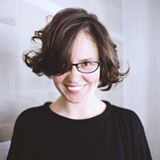During her fellowship, Dr. Simona Aimar is focusing on the reconstruction of Aristotle’s metaphysics of modality. She will mainly work on Aristotle’s texts, as well as its ancient commentators.
The question Dr. Aimar asks Aristotle within her research project is this:
(Q) How should one connect modality and causation?
By ‘modality’, Dr. Aimar means notions like necessity, possibility, and counterfactuals dependences – notions we rely on in order to express what would be the case in certain circumstances. By ‘causation’, she means the explanatory notions of cause and effect, and in particular Aristotle’s peculiar take on them (as is well known, Aristotle thought that there are four kinds of causes: material, formal, efficient, and final causes).
In ordinary discourse, we seem to take modality and causation to be closely related. For example, we often appeal to modal reasoning to figure out what caused something. In order to see whether an assassin killed a given victim, we ask: what if the assassin hadn’t shot the bullet? This suggests we presuppose that there is some close link between modality and causation. But what exactly is the connection between modality and causation? Can it be made philosophically precise?
Within the contemporary debate in metaphysics, some authors seek to account for causation in terms of modality. On the simplest version of the view, causation just is counterfactual dependence: Assassin caused a victim to die just in case, had Assassin not shot Victim, Victim would not have died. However modal accounts of causation have proven to be vulnerable to a plethora of counterexamples – pre-emption, overdetermination, and more. Imagine someone is ready to shoot instead of Assassin if they see Assassin missed. In that scenario, if Assassin hadn’t shot, Victim would still have died. But the truth of this counterfactual shouldn’t lead us to conclude that Assassin is the cause of Victim’s death – intuitively, in the scenario just described, she isn’t. Difficulties like these ones have prompted some philosophers to try and find more sophisticated versions of the counterfactual account, and others to explore alternative approaches for connecting modality and causation. Overall, the question of how to connect modality and causation remains open.
Dr. Aimar’s project investigates what Aristotle has to say about the connection between modality and causation. Aristotle does not ask this sort of question in a straightforward and direct way. Thus, her methodology has to be that of looking at a number of different texts and consider whether once put together, the texts support a coherent view about modality and causation. She focuses especially on parts of Aristotle’s De Interpretatione, Posterior Analytics, and Metaphysics.
In her research, Dr. Aimar argues for a claim that is not usually common-place in the secondary literature on Aristotle, namely the claim that in his view modal claims (and other claims) have truth-makers: they are made true by things being true in the world. Secondly, she lays out these truth-makers in detail and how they require appealing to causation. She also considers what implications of Aristotle’s view mostly remain of interest and are relevant to the contemporary debate.
If you are interested in drafts of Dr. Aimar’s work, please do email her at simona.aimar@gmail.com.
Simona Aimar
 Simona Aimar is an Assistant Professor of Philosophy at University College London. Her work focuses mostly on Aristotle’s theory of modality (notions like necessity and possibility) and causation, as well as on contemporary metaphysics and semantics. She also has interests in the philosophy of mind, feminist philosophy, and social philosophy broadly understood.
Simona Aimar is an Assistant Professor of Philosophy at University College London. Her work focuses mostly on Aristotle’s theory of modality (notions like necessity and possibility) and causation, as well as on contemporary metaphysics and semantics. She also has interests in the philosophy of mind, feminist philosophy, and social philosophy broadly understood.
During her stay at the CHS, Simona is carrying out work on her monograph, provisionally titled Aristotle’s Metaphysics of Modality, as well as completing papers on Aristotle’s notion of technē, on Aristotle’s notion of possibility in his Metaphysics Q.3, and on his notion of dunamis.
You can find out more about her work here.
